Prices in AUD. Shipping worldwide. Flat rate $8 postage per order within Australia. International by weight calculated at checkout. Read full terms.
-
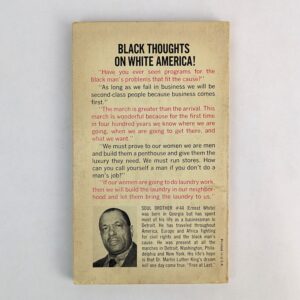
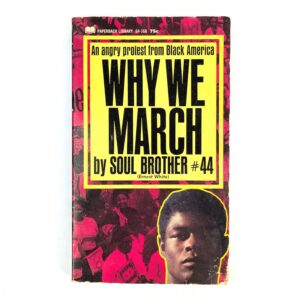
Why We March
AU$30.00 Read MoreAdd to cartSoul Brother #44 (Ernest White)
New York: Paperback Library, 1969.“An angry protest from Black America.”
-
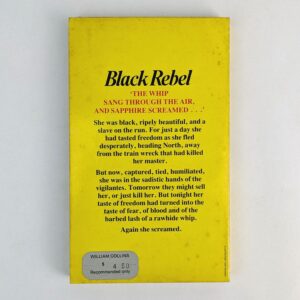
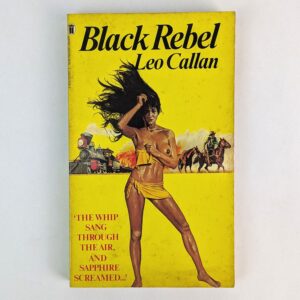
Black Rebel
AU$40.00 Read MoreAdd to cartLeo Callan
London: New English Library, 1981.Blaxploitation pulp. “The whip sang through the air, and Sapphire screamed… She was black, ripely beautiful, and a slave on the run.”
-
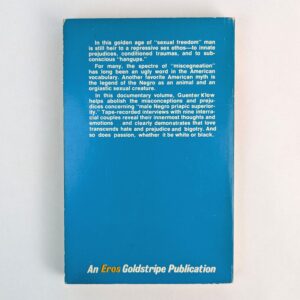
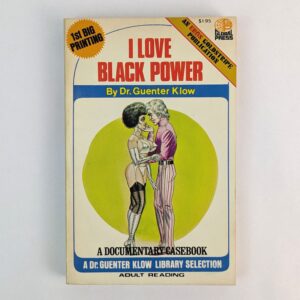
I Love Black Power
AU$500.00 Read MoreAdd to cartGuenter Klow
Wilmington: Eros Publishing Co., 1972.Sexological race pulp by the prolific Paul Hugo Little under his Guenter Klow pseudonym with cover illustration by Bill Ward. Eros Goldstripe Global Press GK-38. A highpoint of 20th century sex pulp publishing. “For many, the spectre of “miscegneation” has long been an ugly word in the American vocabulary. Another favorite American myth is the legend of the Negro as an animal and an orgiastic sexual creature. In this documentary volume, Guenter Klow helps abolish the misconceptions and prejudices concerning “male Negro priapic superiority.” Tape-recorded interviews with nine interracial couples reveal their innermost thoughts and emotions and clearly demonstrates that love transcends hate and prejudice and bigotry. And so does passion, whether it be white or black”
-
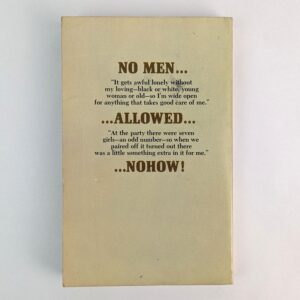
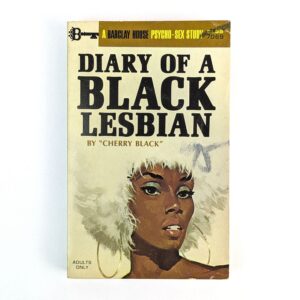
Diary of a Black Lesbian
AU$300.00 Read MoreAdd to cartCherry Black
North Hollywood: Barclay House, 1969.Lebsian blaxploitation pulp. A Barclay House Psycho-Sex Study 7069.
-
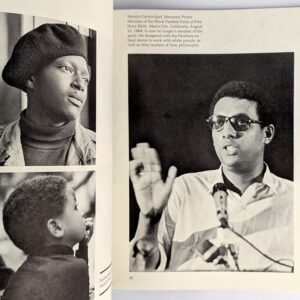
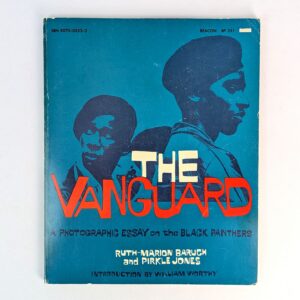
The Vanguard: A Photographic Essay on the Black Panthers
AU$100.00 Read MoreAdd to cartRuth-Marion Baruch; Pirkle Jones
Boston: Beacon Press, 1970.Photobook of intimate portraits of members of the Black Panther Party.
-
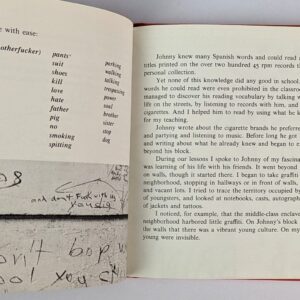
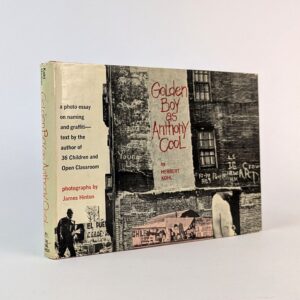
Golden Boy as Anthony Cool: A Photo Essay on Naming and Graffiti
AU$800.00 Read MoreAdd to cartHerbert Kohl; James Hinton
New York: The Dial Press, 1972.Important early study of urban text graffiti and tagging in New York. More than just a photobook, though Hinton’s work definitely gives it that distinction, Kohl, founder of the 1960s Open School movement, provides lengthy and invaluable insight into language and identity.
-
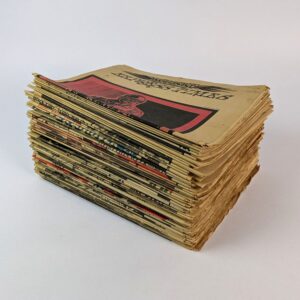
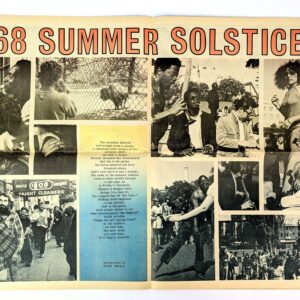
San Francisco Express Times (Complete Run, 61 Issues 1968-1969 w/ the First 7 Issues of Good Time)
AU$2,500.00 Read MoreAdd to cartMarvin Garson; Robert Novick
San Francisco: The Trystero Company, 1968-1969.Complete run of the weekly underground newspaper San Francisco Express Times from Vol. 1 No. 1 January 26, 1968 – Vol. 2 No. 12, March 25, 1969, being all 61 issues before it was renamed Good Times being , here offered with those first seven issues, being Vol. 2 No. 13, [April 1969] – No. 19 May 14, 1969. Good Times continued (on a less regular publishing schedule) until August 2, 1972. Founded by Marvin Garson and Bob Novick the Express Times was a counterculture tabloid covering and promoting radical politics, music, arts, and progressive culture in the Bay Area. It featured extensive coverage of student riots including the prolonged strike at San Francisco State University, and a serialized novel of guerrilla warfare in the United States, Berkeley Guns by Lenny Heller, as well as a weekly cooking column by Alice Waters, illustrated by David Lance Goines. Regular contributors included Todd Gitlin, Greil Marcus, Paul Williams, Sandy Darlington, and Marjorie Heins, alongside staff photographers Jeffrey Blankfort, Nacio Jan Brown, and Robert Altman, and cartoons by Jaxon, Ron Cobb, and Sharon Rudahl. Also featured are writings by or about Richard Brautigan (Note: The final issue credits themselves for publishing 62 issues in total, however this is believed incorrect, there being 61 issues published weekly with a week taken off at the New Year. Comparable holdings found also note the total as 61. Also note Vol. 1 No. 13 misnamed No. 14, April 18, 1967 [1968], sequential numbering then corrected with No. 14 designated as No. 14.5)
-
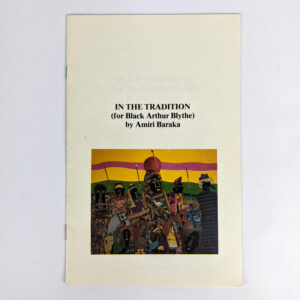
In the Tradition (for Black Arthur Blythe)
AU$40.00 Read MoreAdd to cartAmiri Baraka
: Amiri Baraka, 1980. -
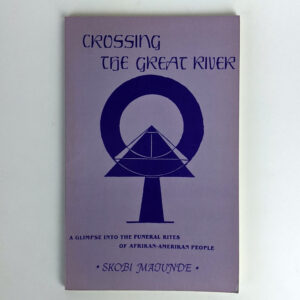
Crossing the Great River: A Glimpse into the Funeral Rites of Afrikan-Amerikan People
AU$20.00 Read MoreAdd to cartSkobi Matunde
Philadelphia: Freeland Publications, No date. -
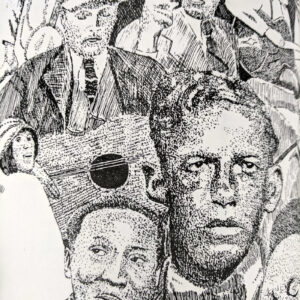
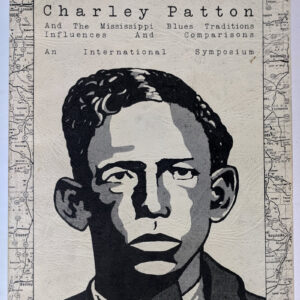
The Voice of the Delta: Charley Patton And The Mississippi Blues Traditions, Influences and Comparisons: An International Symposium
AU$300.00 Read MoreAdd to cartRobert Sacre
Liege: Presses Universitaires Liege, 1987.Charley Patton is widely considered to be the father of the Mississippi Delta Blues tradition, a genre of music that would go on to become world-famous through the work of Robert Johnson, Muddy Waters, Lead Belly, John Lee Hooker and Blind Willie McTell. In 1987, a collection of the best musicians and scholars of Delta Blues commemorated the centenary of Patton’s birth in 1887 by holding a symposium. Collected here are the papers they presented at that symposium, along with photographs and illustrations befitting the richness of their subject. This copy signed and numbered by the editor, Robert Sacre. Errata slip laid in.
